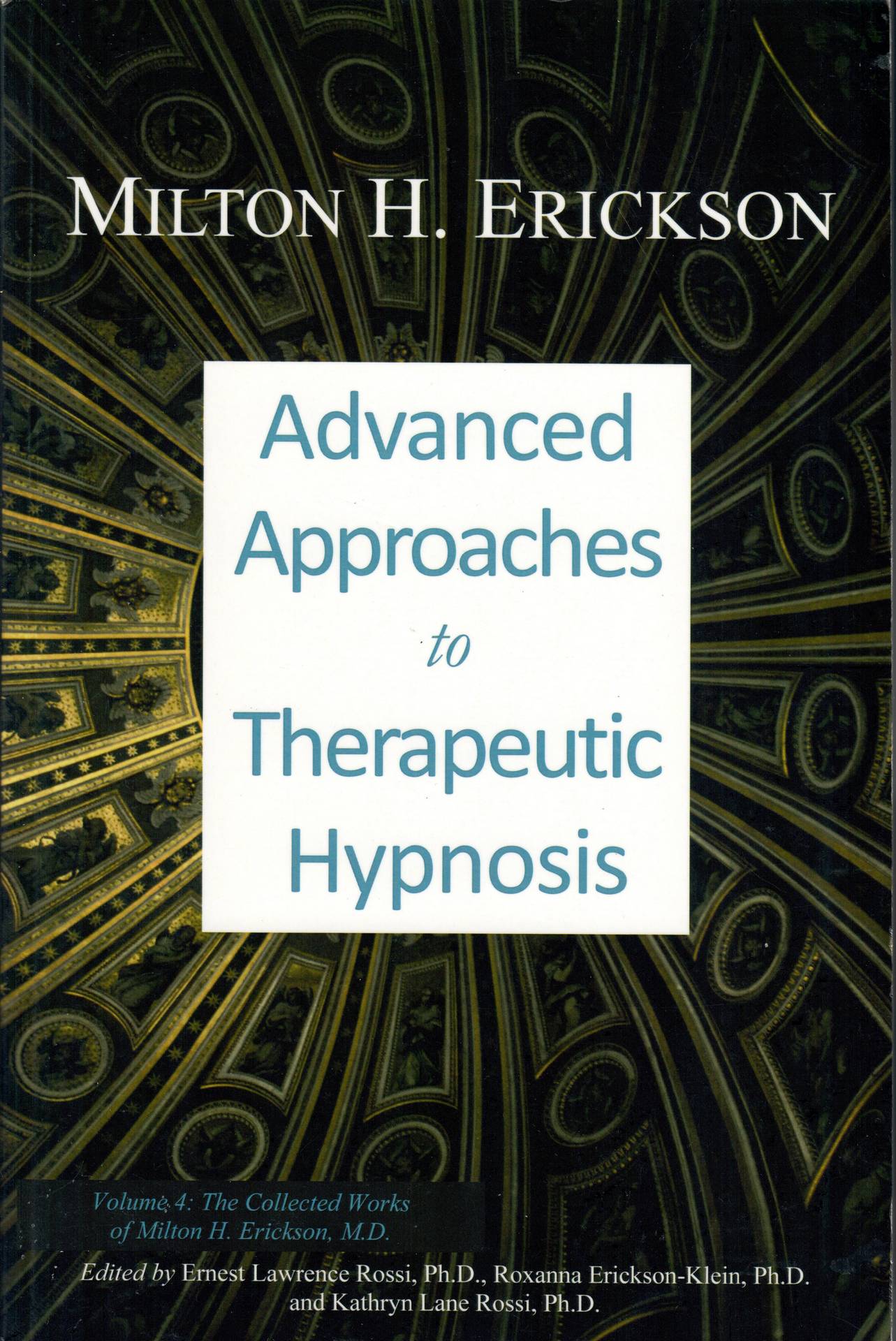Embody Serenity
Advanced Approaches to Therapeutic Hypnosis
Volume 4: Collected Works of Milton H. Erickson, MD
Ernest L. Rossi, PhD, Roxanna Erickson-Klein, PhD and Kathryn Rossi, PhD, Editors

This book is available through The Milton H. Erickson Foundation Press.
The papers in this volume approach what may be regarded as the most salient of open questions about psychotherapy and therapeutic hypnosis: How do we facilitate the creation of new consciousness and identity here and now today? The first section on Advanced Approaches to Therapeutic Hypnosis contains some of Erickson’s most brilliant yet controversial papers about utilizing the patient’s classic symptoms of anxiety, confusion, and resistance in psychotherapy and therapeutic hypnosis.
Like many pioneers, Erickson tried to explain his thinking as he reported his actual experiences with patients, but one looks in vain for a clear protocol that students can follow to repeat his therapeutic success. The patient’s urgent need and Erickson’s highly original approaches interact to generate complex therapeutic responses that always seem to be one-of-a-kind situations that defy scientific analysis. Many of these one-of-a-kind therapeutic situations are described in an anecdotal manner in the second section on Facilitating New Identity Creation. These delightful vignettes about actual cases are easy to read and point to the free-form approaches that every creative therapist can aspire to.
The third section on Experimental Neurosis is characteristic of Erickson’s intricate and deep thinking about experimental approaches to therapeutic hypnosis and psychotherapy. His classic reports on the hypnotically induced psychological complexes are an inspiration and challenge for current students and researchers to explore our still incomplete understanding of his methods. We are here entering terra incognita, for example, more than 50 years later, as we witness Erickson’s pioneering efforts to use Therapeutic Hypnosis with Psychosis in the fourth section.
We add neuroscience updates about the role psychosocial genomics plays in therapeutic suggestion in Section five along with the evolutionary question of why we have memory in the first place.